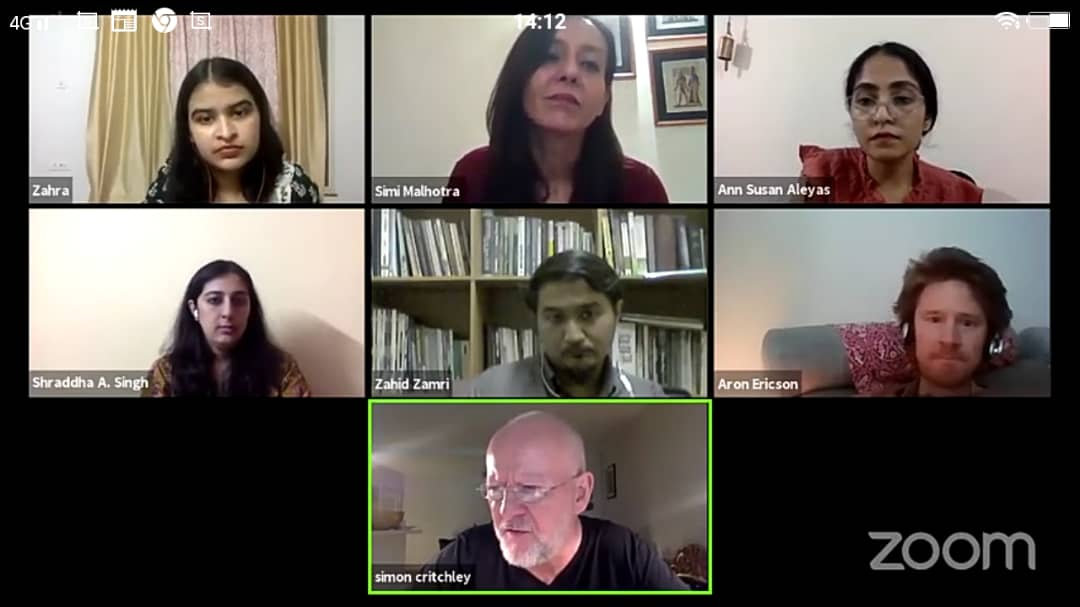By Zahid Zamri
In this period of œnew normal, I had the opportunity to attend three Zoom webinars organised by the Department of English, Jamia Millia Islamia, New Delhi, India. Headed by Professor Simi Malhotra, these webinars are part of the Distinguished Lecture Series supported by the Indias Ministry of Education under the SPARC (Scheme for Promotion of Academic and Research Collaboration) programme in collaboration with the University of Würzburg, Germany.
The first lecture I attended was by Simon Critchley entitled œPandemic Mysticism. Critchley is the Hans Jonas Professor of Philosophy at the New School for Social Research in New York, USA. Basically, he talked about the increasing of mystic-oriented thinking by individuals as a result of seclusionary act and inability to go out from their houses due to the quarantine policy during the pandemic.
Nonetheless, of interest, among others, is when he acknowledged that since the Enlightenment the Western philosophy has been pushing away mysticism from philosophy, and this does not happen in Islamic philosophy. He then quoted the works on Sufism by Muslim philosophers. Such dismissals of religion from philosophy worried him as it is counterproductive and a loss for the Western philosophy and its convention since the beginning of the Enlightenment. This reminds me of Professor Dr. Mohd Kamal Hassan’s argument that the Western civilisation is actually a falling civilisation due to its rejection of religious ethos for the last 300 years.
Next I attended Nancy Fraser’s œThe Covid Pandemic: A Perfect Storm of Capitalist Irrationality and Injustice. Fraser is the Henry A. and Louis Loeb Professor from the same institution as Crithcley. In her lecture, she reiterated that it is non-other than the structure of global capitalism that contributes to all sorts of predicaments faced by humanity e.g. public health issues, fascism, terrorism and enviromental problems. Only by changing this capitalistic structure and opting to other alternatives will give us the solutions for these issues.
Hence, in relation to the question of seeking for alternative, my question to her was: œWith the subsumption of every (im)material “thing” to global capitalism, do you think that theoretical products by postcolonial or indigenous socio-political thoughts may contribute to an effective counter-hegemonic project? She then responded by referring to the ecological and anti-colonial movements in the Global South which for her certainly can contribute to our effort in looking for the alternative to the hegemonic – what she called as – œcannibal capitalism.
Last but not least, I attended Vijay Prashads œDilemmas of Humanity. He is the Executive Director of Tricontinental: Institute of Social Research, an international research institute based in Argentina, Brazil, India and South Africa. In his lecture, Prashad, who is also an Indian historian-activist, journalist, and former professor of international studies at the Trinity College, Connecticut, USA, stressed on the problems of hunger across the world particularly surrounding New Delhi.
He described how a hungry child simply could not concentrate on learning because of the noise in the childrens head – like the vrooming sound of a truck – that keeps on sounding due to the empty stomach. He also stressed on the huge amount of food waste from hotels, restaurants and houses of the elite class which the hungry could not get access to due to the socio-economic gap and dispossession of money. Money, according to him, has been fetishised which in turn prevents the hungry from getting basic needs such as food.
In addition, he highlighted that actually these poor people they do not even ask for such lavish, hotel-made foods. For them it is enough to have Sattu (a basic dish made of flour and cereals) and plain water as their daily meals. To make matters worse, he further explained that due to such suppressing circumstances, these poor people have been used to the death of their children due to starvation and they have developed a culture where they disregard their childrens names and their deaths as for them these children will simply reborn i.e. reincarnate by karma, etc. Besides, he also pointed out the oppressions faced by Muslims across India and the efforts that have been done by the surrounding community to protest on such suppressions.
Above all, among the insights that we can derived from these lectures are, as Muslims we actually have the recognition from the Western civilisation that we have been successful in fusing and not separating religion with our reasoning capacity. This has been lacking in the Western philosophy and its convention for hundreds of years. Such a void has created the feeling of longingness and awareness among the Western philosophers that religion is a vital factor in advancing any philosophical, theoretical and scientific projects.
Therefore, we must believe that our approach is the best approach that will lead us to success. Hence, we should be proud of this and do our best to prove our relevance. Nevertheless, as we can see still there are many issues faced by Muslims and humanity as a whole that need to be resolved.
Problems created by cannibal capitalism that leads to hunger, political, social and ecological problems must not be overlooked by Muslim scholars. Hence, Muslim scholars must be able to see the bigger picture and must not be disillusioned by these merely symptomatic problems which are actually created by the main systemic-structural factor namely the global capitalist mode of production.***
(Dr. Zahid Zamri is Assistant Professor in the Department of Political Science and Coordinator of Islamisation, KIRKHS, IIUM)
